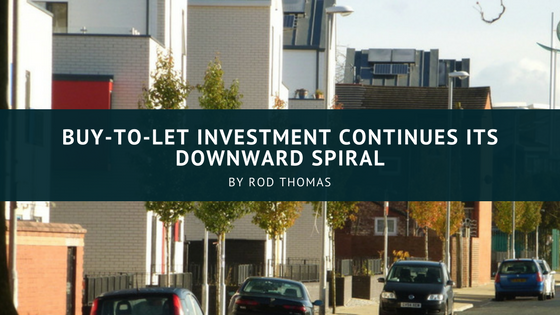
Any investor or landlord hoping for a Christmas miracle in the buy-to-let (BTL) sector will find themselves left out in the cold this season. As I’ve discussed extensively, BTL investment has suffered mightily at the hands of regulation and changing economic patterns, and today, it’s a shell of the lucrative asset class that it once was.
In plain terms, BTL investment is simply no longer as profitable profitable as it has been. For evidence of this trend, look no further than rental yields. While average rents in England and Wales have increased by 2.4% this year, 2017 rental yields in those regions are just 4.4% compared to 4.8% in 2016.
This indicates that although rents are increasing, that revenue is going toward the significantly higher operating costs faced by landlords and investors. Even as tenants are paying more, BTL simply can’t generate the returns it produced as recently as last year, highlighting the stagnant character of these investments today.
Entry into the BTL market—or rather, the lack of it—reflects these new realities. According to a recent report published by Kent Reliance, a mortgage lender specialising in servicing landlords, small-scale landlords have not added new homes to their portfolios in the wake of regulatory changes. Investors and landlords who are new to BTL are finding that it is no longer sufficiently profitable for them to enter the sector due to new government regulations that increase their tax burdens, and a result, they’re steering clear of the market.
Furthermore, Chancellor Philip Hammond’s Budget contains fresh woes for BTL investors and landlords alike. The Budget freezes the indexation allowance, which allows investors to offset the cost of inflation and thus pay less in capital gains taxes when eventually sell their properties.
Ending the indexation allowance means that incorporated landlords and investors will need to pay the general corporation tax rate—which is now 19% but set to fall to 17% by 2020—once they sell, therefore putting thousands more pounds in the hand of the tax collector that would have previously been profit. Now, just as regulation is preventing investors from entering the market, it’s reaching even further into their pockets if they try to leave.
For those who want to avoid the pitfalls of BTL investment, there is a solution: Avantis Wealth. Thanks to the F.R.E.S.H. Investment Strategy, my company is able to generate average annual returns of 7-15% for our clients. If you’d like to learn more, you can request a copy of the F.R.E.S.H. Investment Special Report by calling +44 1273 447 299, sending an email [email protected], or visit our website.
Hi! I am a robot. I just upvoted you! I found similar content that readers might be interested in:
http://rodthomasinvestment.co.uk/buy-to-let-investment-continues-its-downward-spiral/